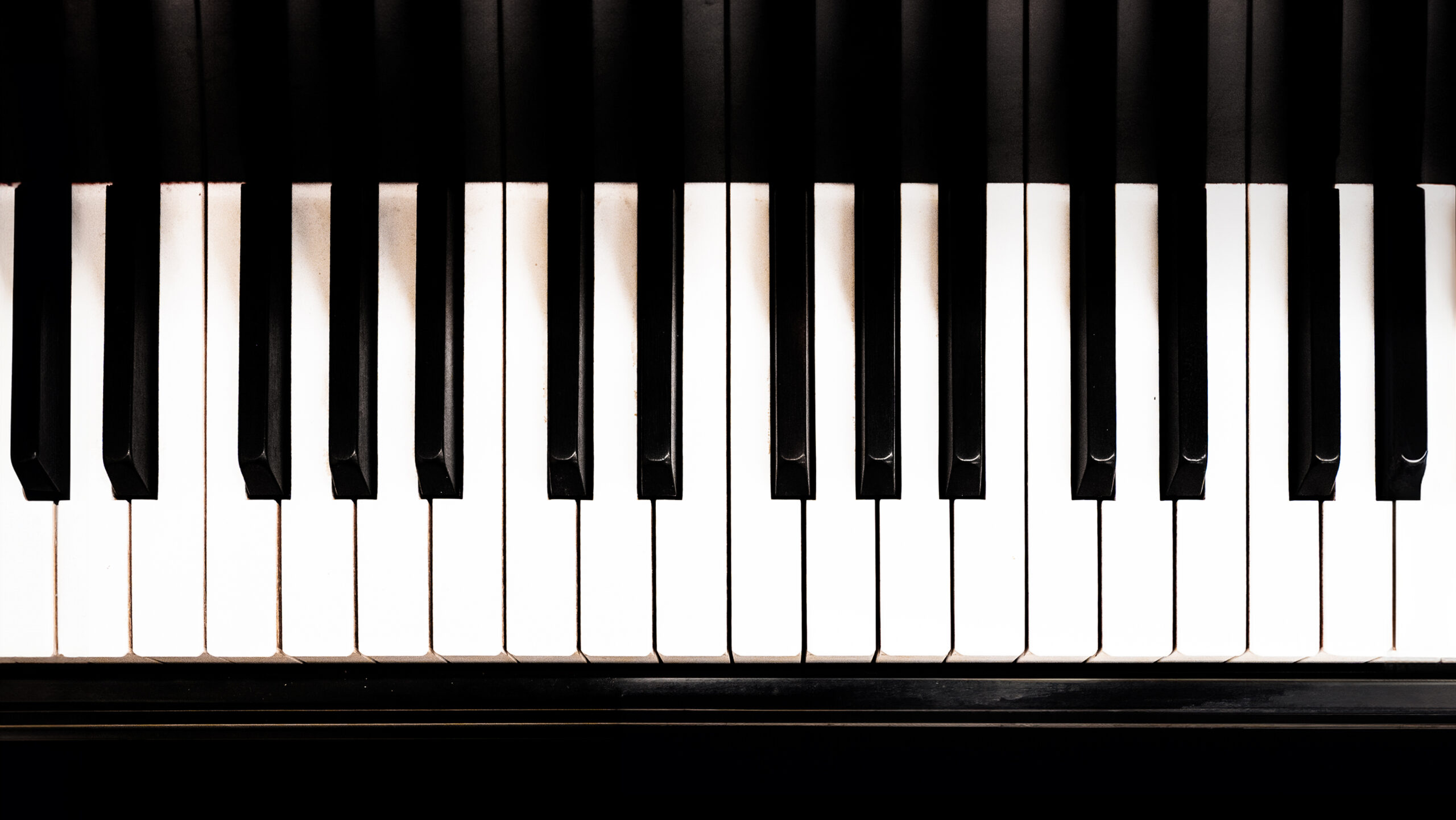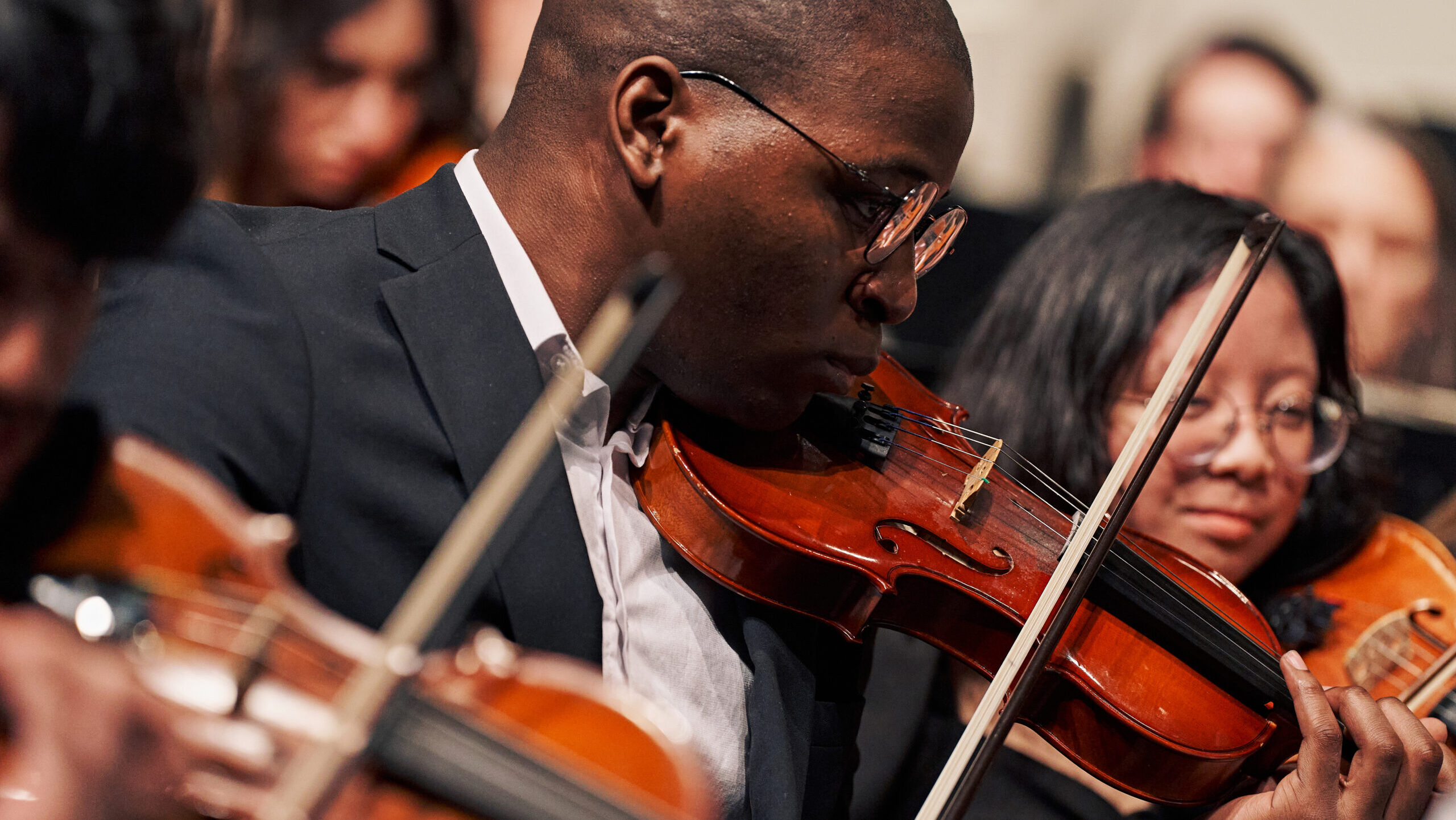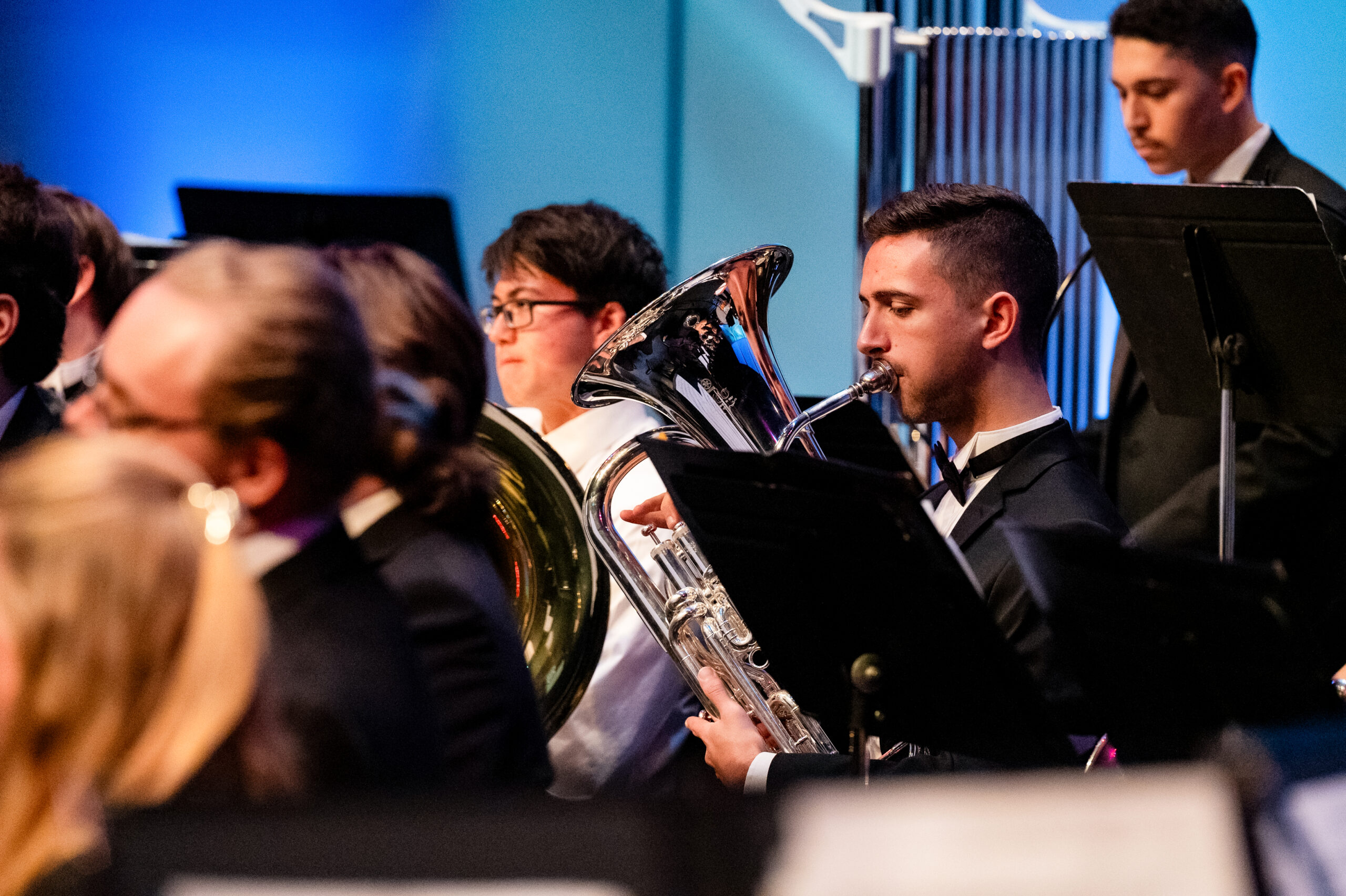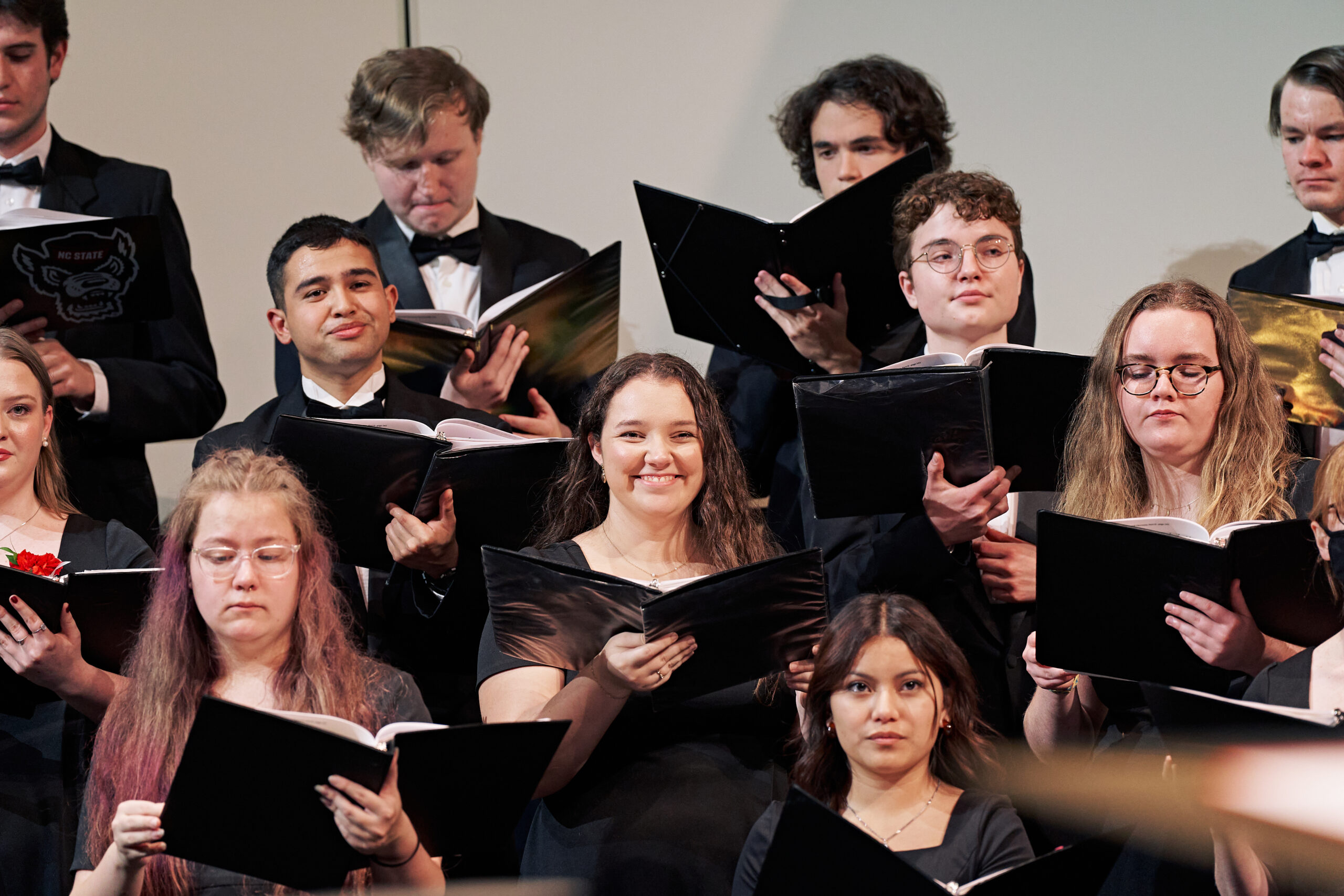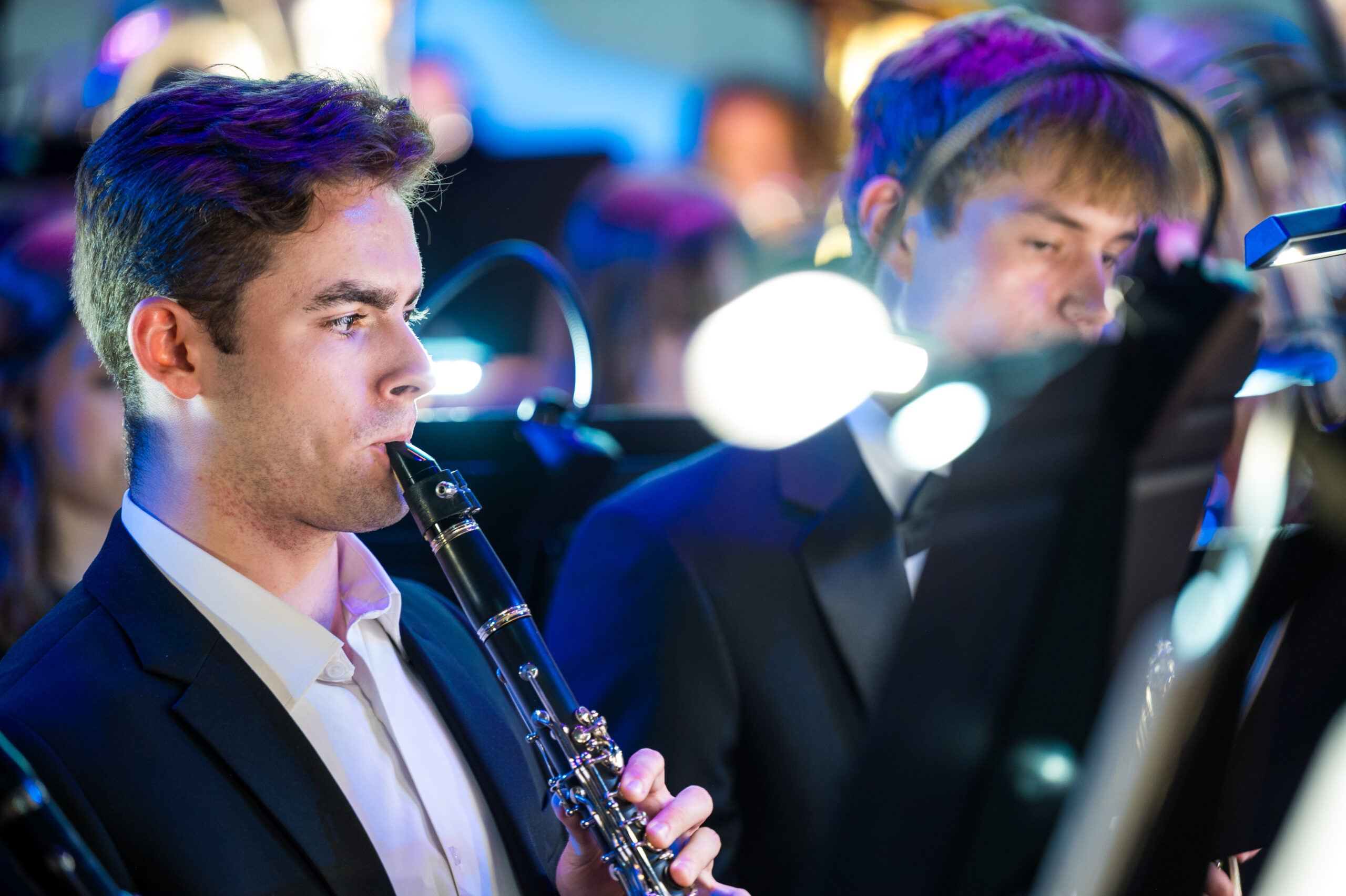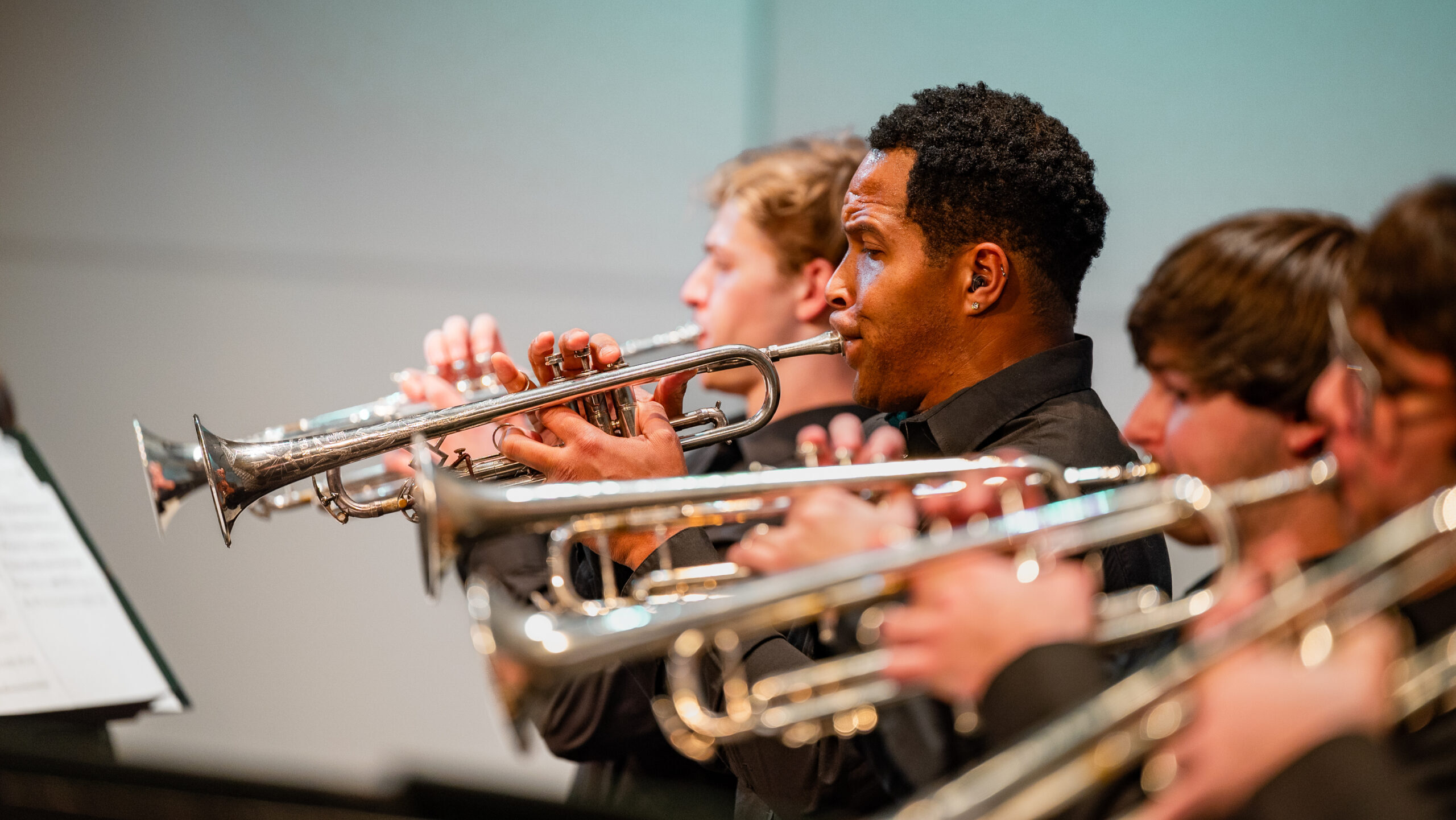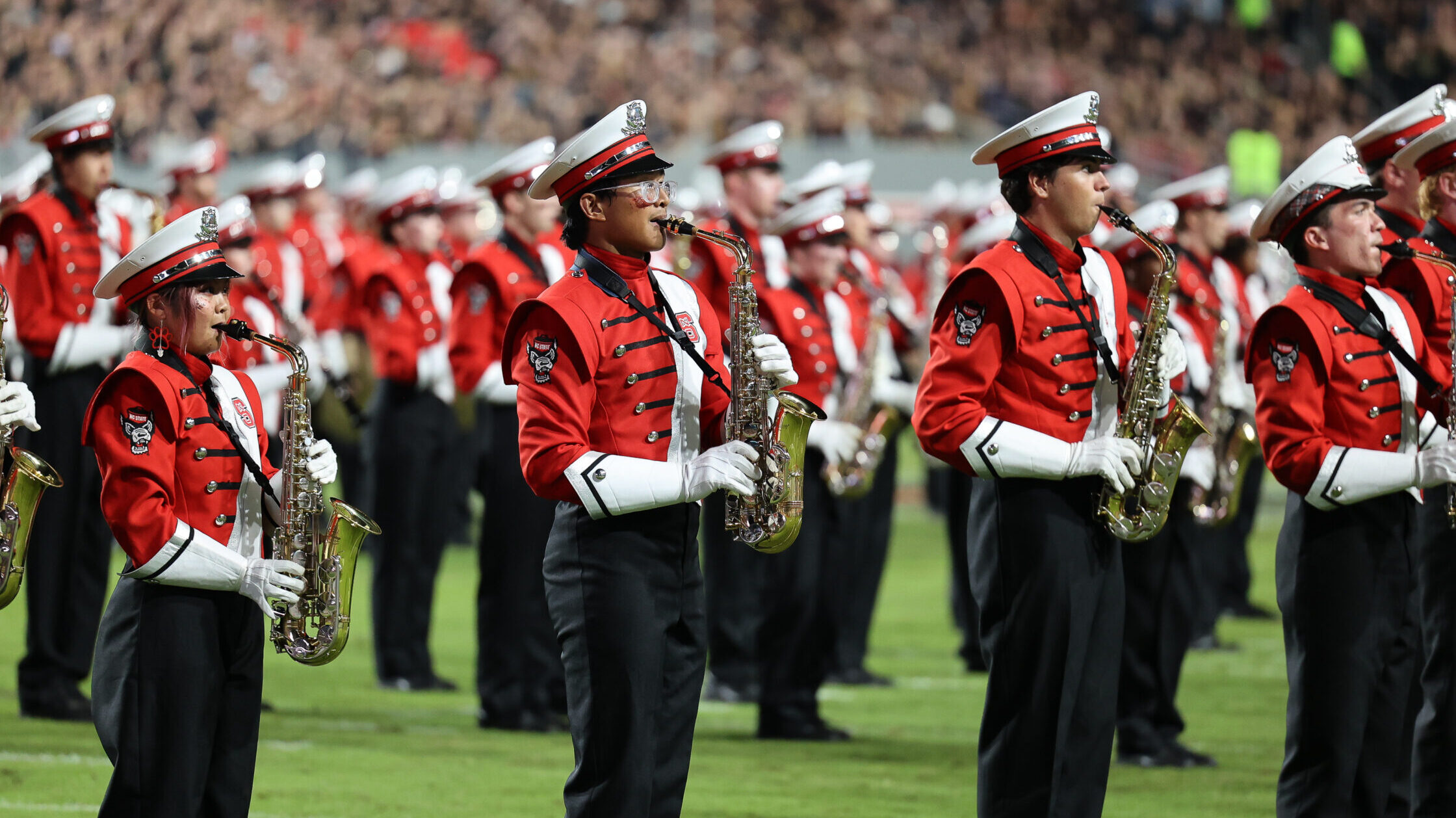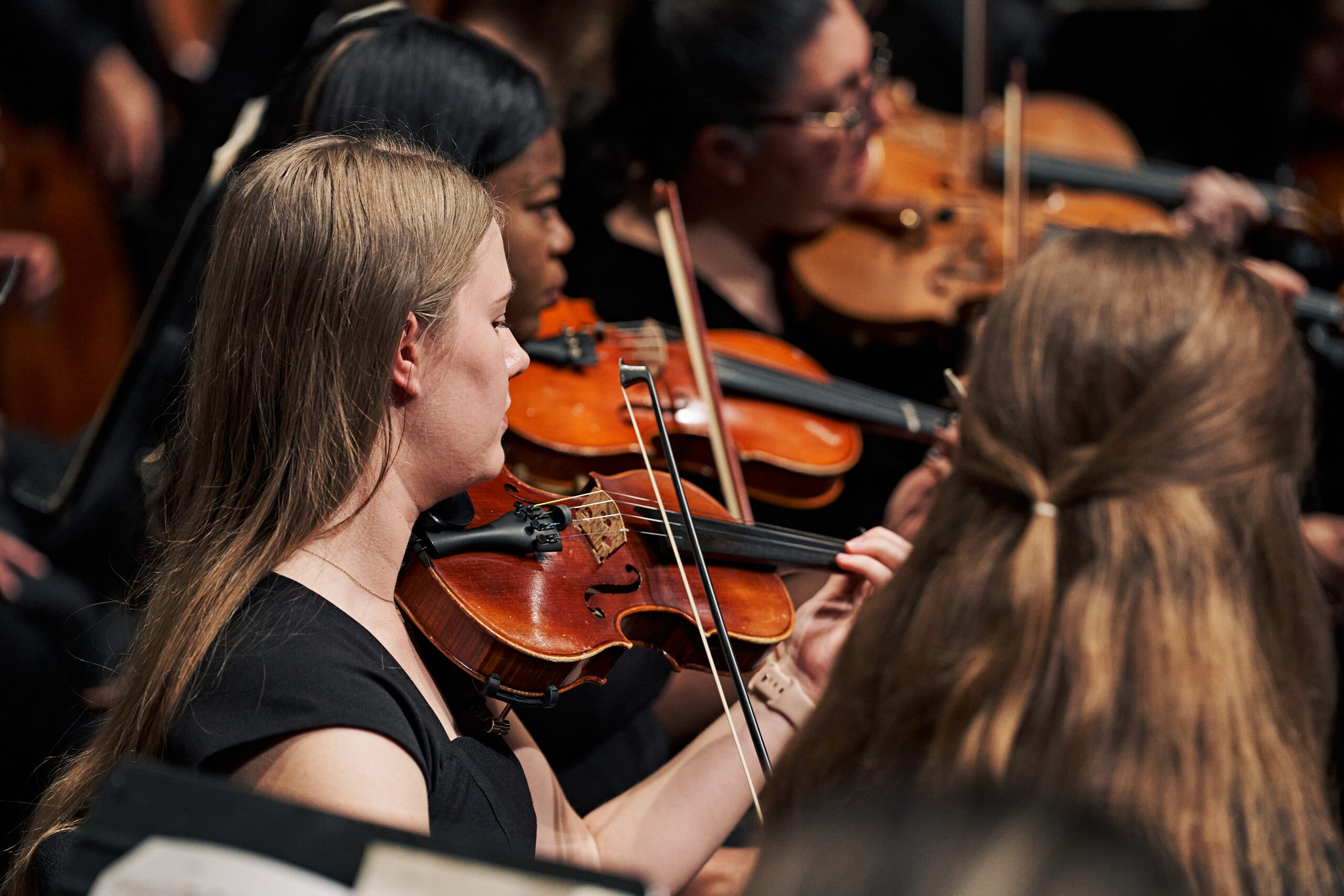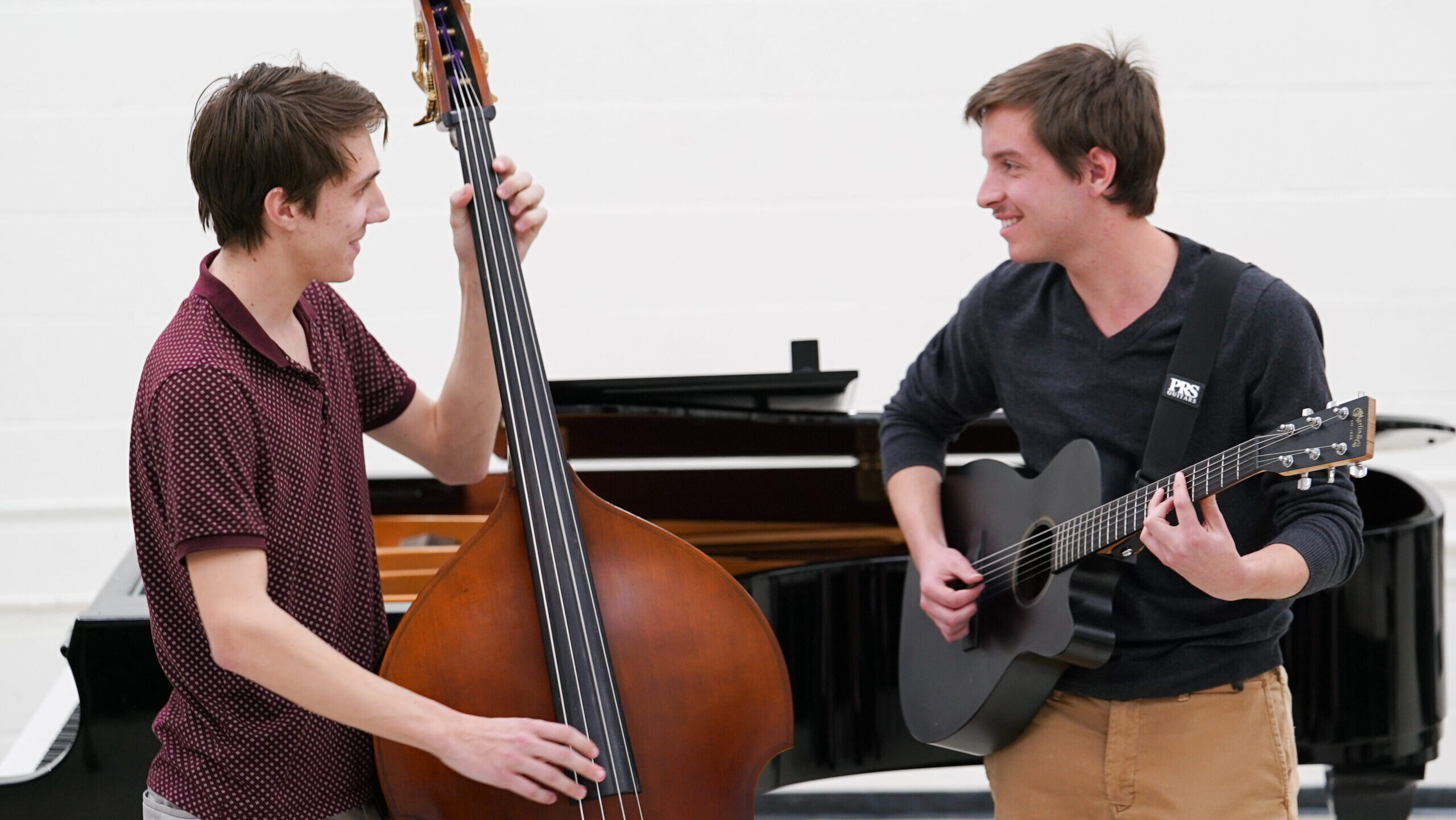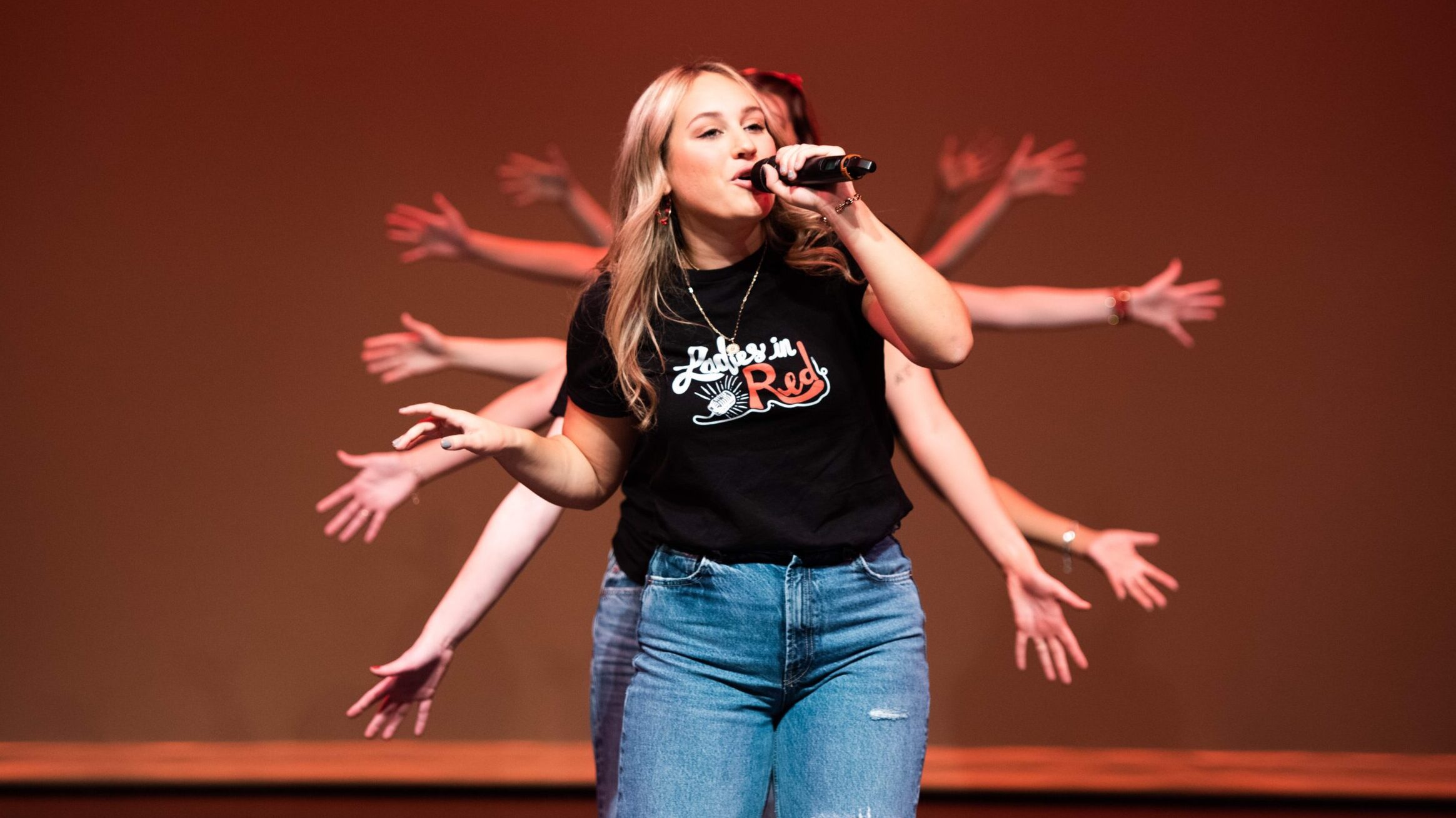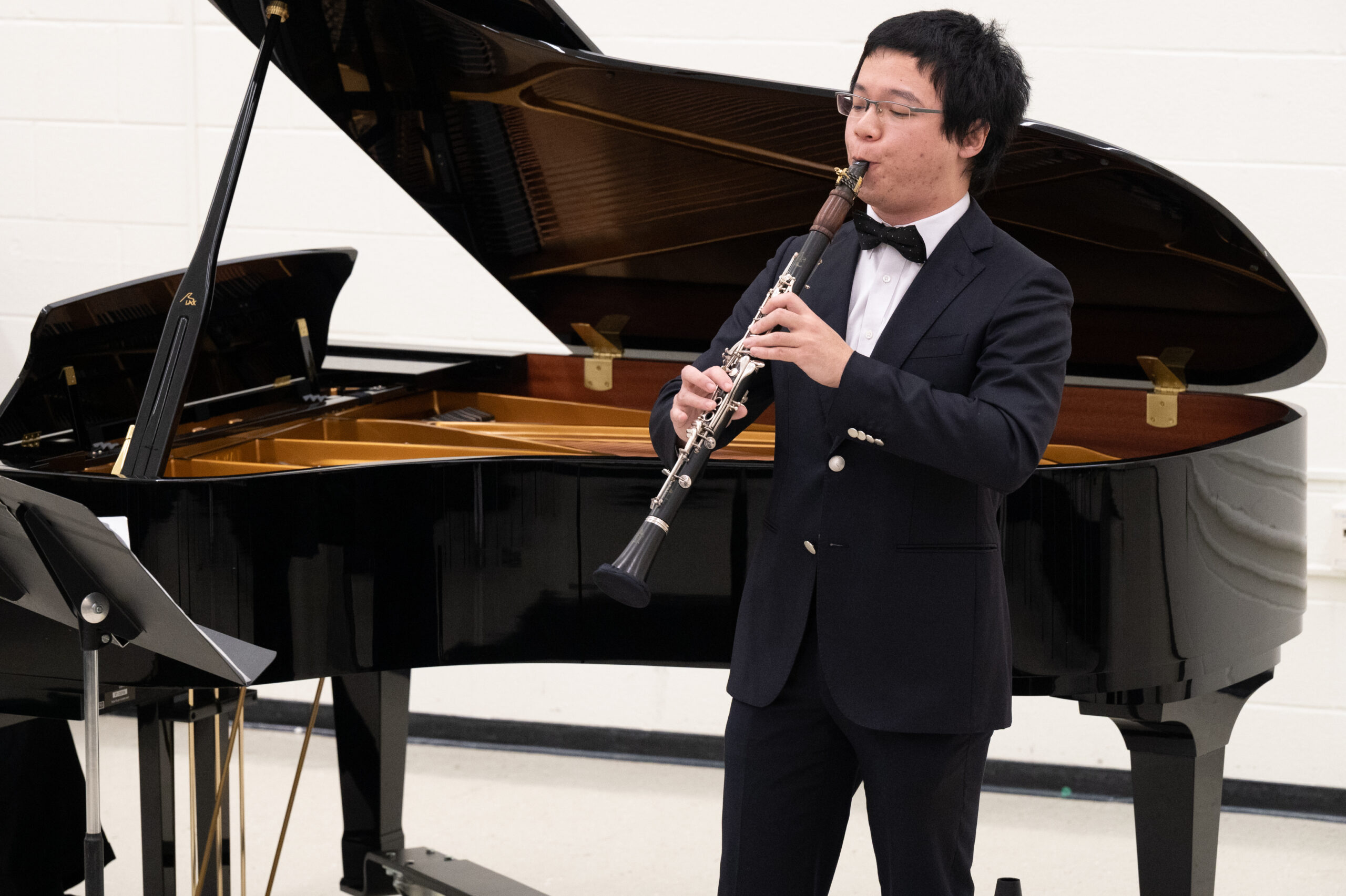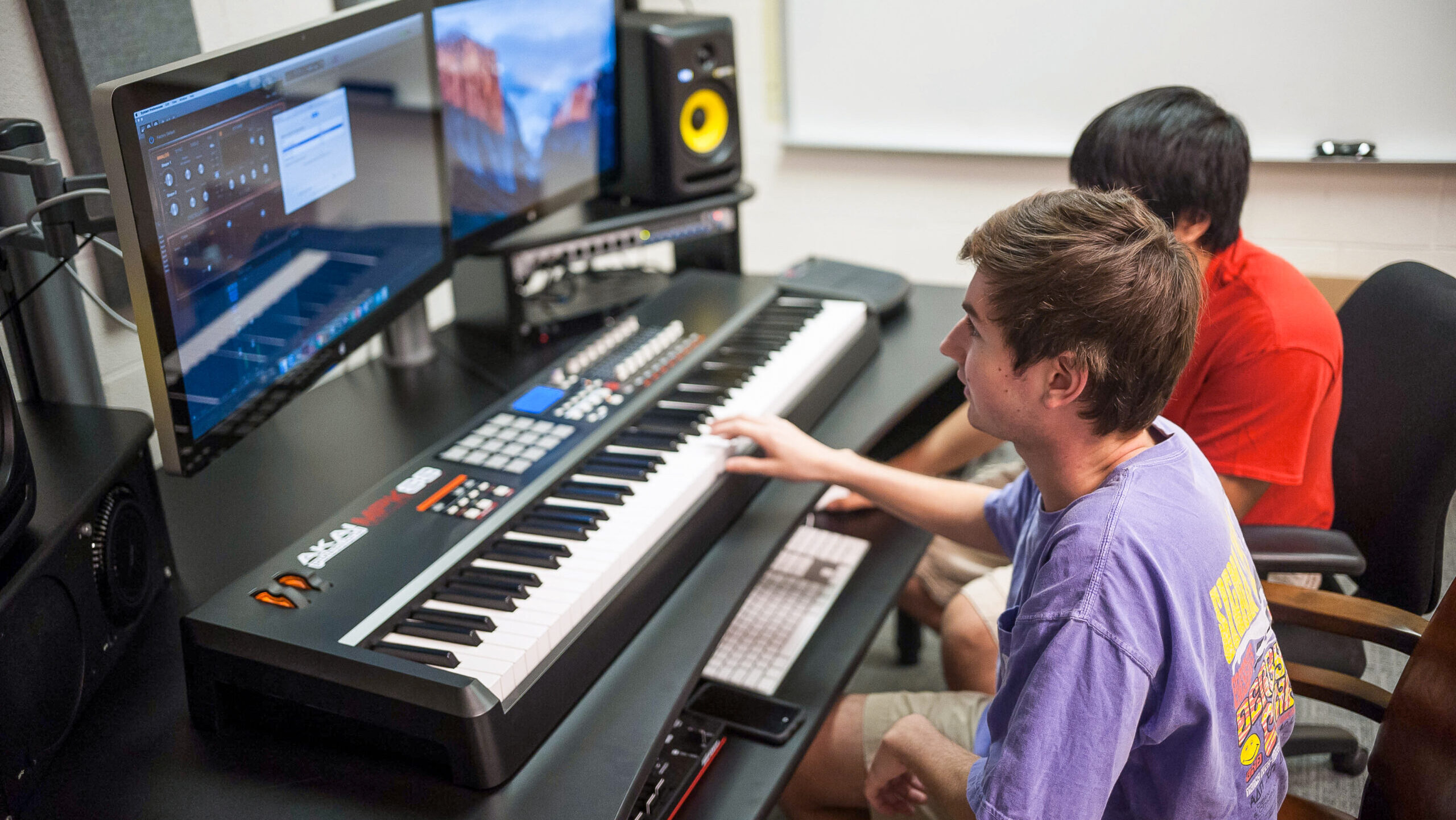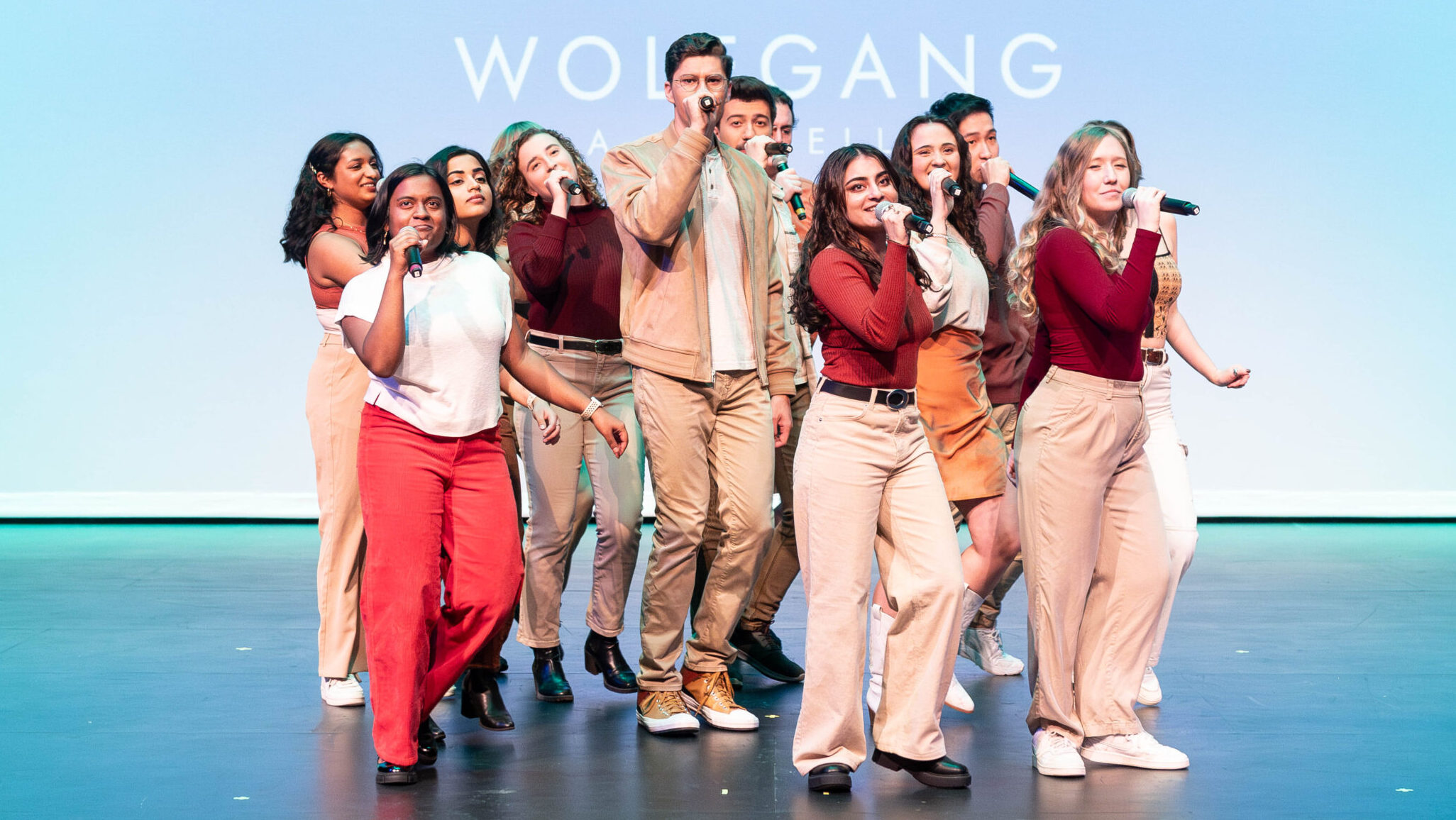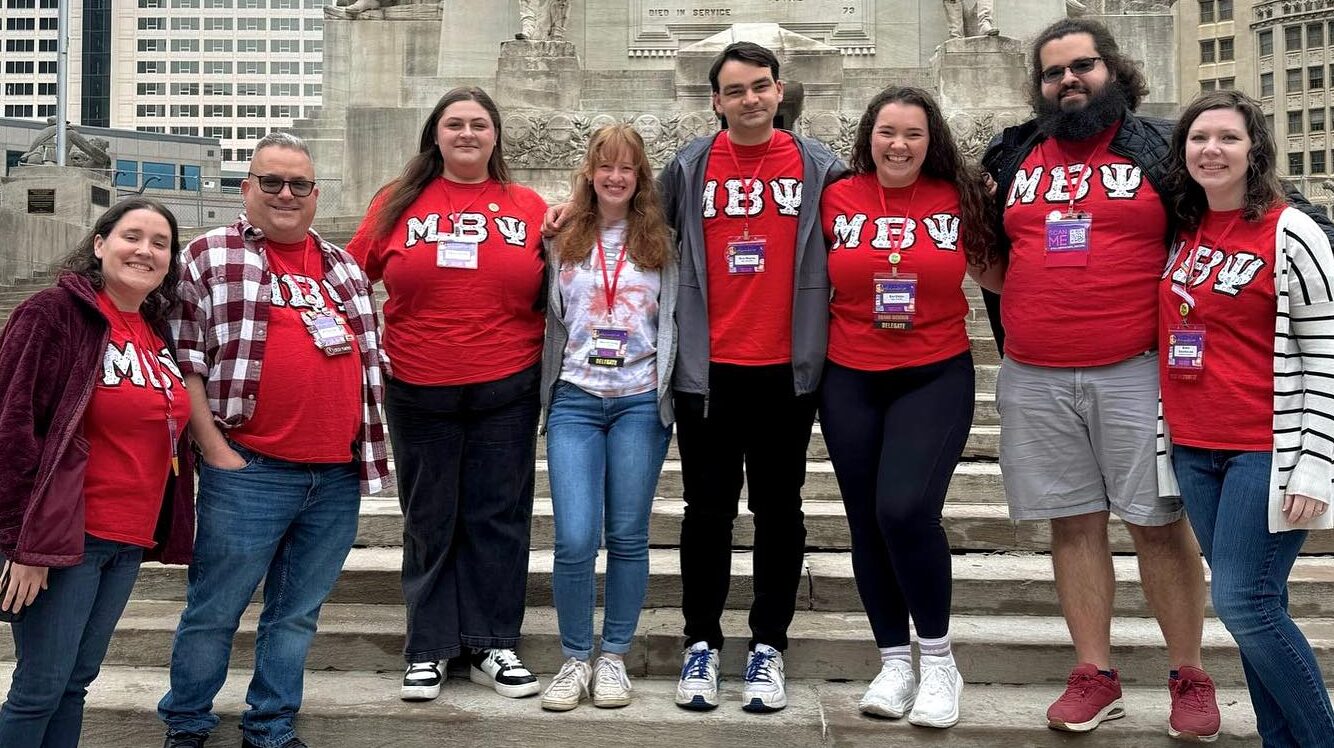Music at NC State
Explore all of our music courses, events, and performance opportunities.
The Soundtrack of NC State
The Department of Performing Arts and Technology provides educational and performance opportunities for students and community members through a variety of musical experiences and academic courses.
Any student can make music at NC State regardless of their major. Undergraduate and graduate students pursuing degrees in various fields bring their unique perspectives and backgrounds as they develop both artistically and intellectually.
All Music Events
One challenge down, one more to go! ❤️🐺🎶
We`ve already met our goal for the Music Enhancement Fund Gift Challenge! Now it`s time to share why you love music at NC State in the #GivingPack Passion Match Challenge! Swipe to learn more, and head to the Day of Giving highlight @ncstateartstech to get started!
Let`s show the strength of NC State Music together! 🎵
Mar 26

Today, the DPAT Through the Decades series, in celebration of 100 years of music at NC State, comes to an end as we highlight the 2020s. In this decade, the music program joined with the dance and arts entrepreneurship programs, with the addition of a new major in Music Technology, to form the NC State Department of Performing Arts and Technology. Stuart Benkert was named head of the newly formed department in 2024.
Mar 21

We have an amazing set of performances for you next week! Learn more ⬇️
🎤 Chordination and Acapology, co-ed a cappella student organizations, are both having their spring concerts
🎻 Later in the week, the Raleigh Civic Chamber Orchestra will feature the world premiere of Dr. Nathan Leaf`s “The Way from Birmingham,” which focuses on Dr. Martin Luther King Jr.’s Letter from a Birmingham Jail, in collaboration with the State Chorale. This performance will also include works by Beethoven, Haydn, Niloufar Nourbakhsh and more, with NC State English Professor Jason Miller joining the orchestra to speak about King’s work and its continuing relevance. This program is funded in part by the City of Raleigh based on recommendations of the Raleigh Arts Commission #raleighartspartners
Be sure to check out these great concerts! Get your tickets at the following link: https://go.ncsu.edu/Concerts
Mar 20

Perform
A wide variety of performing ensembles provide opportunities for students to develop both artistically and intellectually through applied music study. Through performance, the ensembles play an important role in campus life, presenting public concerts and performing at official functions (both on and off campus) and athletic events. Curricular performing ensembles receive one academic credit that may be used to satisfy free elective requirements in any academic major.
Feeling nervous about auditioning for a music ensemble? Try our symphonic band (MUS 135) to start, which doesn’t require an audition.
FAQs
Where can I practice?
Price Music Center is home to more than a dozen reservable practice rooms, each equipped with either an upright or digital piano and a music stand. Any student at NC State can book a standard practice room online after receiving approval from the department.
Can I rent and store an instrument?
Student-musicians enrolled in our music ensembles or the music performance minor may rent an instrument for $50 per semester or $90 for the academic year. The rental fee includes access to an instrument storage locker in Price Music Center. Ensemble students who bring their own instruments may also request access to a locker.
Are there scholarships available?
Musicianship-based scholarships are available to support student-musicians who enroll in performing ensembles or pursue a minor in music at NC State.
Other Performance Opportunities
Take Your Study Further
Enroll in a Music Course
The Department of Performing Arts and Technology is committed to providing broad-based educational opportunities for NC State students through a variety of music and dance experiences and introductory and upper-level courses. Department faculty seek to assist students in developing insights, skills, and the capacity to perceive and respond to music and dance in its historical and cultural contexts.
Enroll in a music course and expand your knowledge and understanding of the art form while you satisfy various GEP Requirements. Explore your options in the NC State course catalog. Our two music minors are designed for qualified undergraduate students who wish to pursue a more extensive study of music.
If you’re interested in learning to play an instrument, improving your vocal techniques or understanding the fundamentals of music theory, we offer several courses perfectly suited to student musicians just starting out.
Music Technology Major
The undergraduate major in music technology is an interdisciplinary program that provides a foundation of theoretical and practical skills in music and electrical and computer engineering to prepare students to design, develop, and implement advanced music technologies.
In addition to a variety of supporting courses, it has three primary components:
- a musicianship core
- 29 hours, including applied and ensemble study
- an engineering core
- 26 hours, including calculus and physics
- a music technology core
- 18 hours
Each student will complete a two-semester senior design project and select a small concentration in either Software and Digital hardware (SDH) or Electronics and Circuits (EC). Learn about each area of study below.
Software and Digital Hardware (SDH)
Students pursuing the Software and Digital Hardware concentration will take an additional 9 hours of engineering courses focusing on the design of computing systems.
Electronics and Circuits (EC)
Students pursuing the Electronics and Circuits concentration will take an additional 10 hours of engineering courses focusing on the design of electronic systems.
Music Minors
Music is part of who you are; there’s no reason to give that up when you get to college. Our two music minors let you choose whether to pursue a focused study of your instrument or explore music more broadly.
Music Performance Minor (18 credit hours)
Music Studies Minor (18 credit hours)
If you’re looking for a truly interdisciplinary education, consider adding a minor in music to your undergraduate experience. The skills you develop as a musician or gain as you deepen your understanding of music’s role in society will prepare you to think critically, lead with confidence and innovate in whatever field you choose.
Our outstanding faculty will help you get exactly what you want out of your music minor. You’ll also join our passionate community of student-musicians, music scholars and enthusiasts on campus, while building a foundation for lifelong music-making and engagement with the arts.
FAQs
Where can I practice?
Price Music Center is home to more than a dozen reservable practice rooms, each equipped with either an upright or digital piano and a music stand. Any student at NC State can book a standard practice room online after receiving approval from the department.
Can I rent and store an instrument?
Student-musicians enrolled in our music ensembles or the music performance minor may rent an instrument for $50 per semester or $90 for the academic year. The rental fee includes access to an instrument storage locker in Price Music Center. Ensemble students who bring their own instruments may also request access to a locker.
Are there scholarships available?
Musicianship-based scholarships are available to support student-musicians who enroll in performing ensembles or pursue a minor in music at NC State.
Student Organizations
Students at NC State pursue their various interests through our courses and the affiliated student organizations that we support.
Whether you’re looking for a chance to perform with a group or to learn more about a specific topic with like-minded friends, there’s a student-run club or organization waiting for you. If there’s not, we can help you start one!
Want to learn more? Explore all of NC State’s student-run organizations to find details, social media accounts and additional contact information for your organization of interest.
Music Student Organizations
Learn moreMu Beta Psi
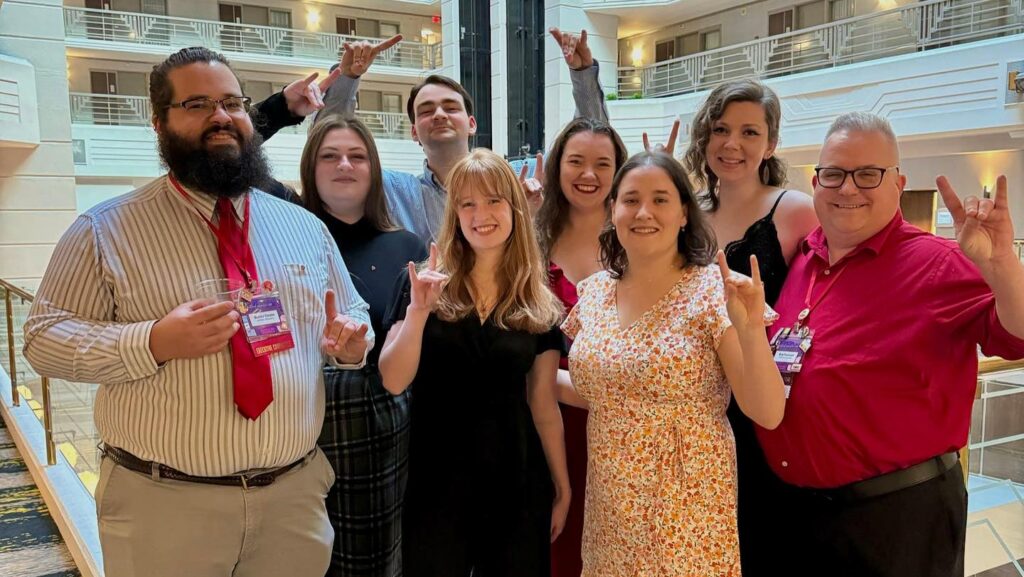
Experience More Music
Attend a Concert
The Department of Performing Arts and Technology presents dozens of concerts annually, providing various affordable opportunities for students, families and local concertgoers to experience incredible live performances. We hope to see you at a concert soon!
Series Events
Our department strives to make music accessible to everyone at NC State. In addition to our regular music ensemble concert season, our department offers unique performances, workshops, and lectures led by our faculty and professional guest artists.
